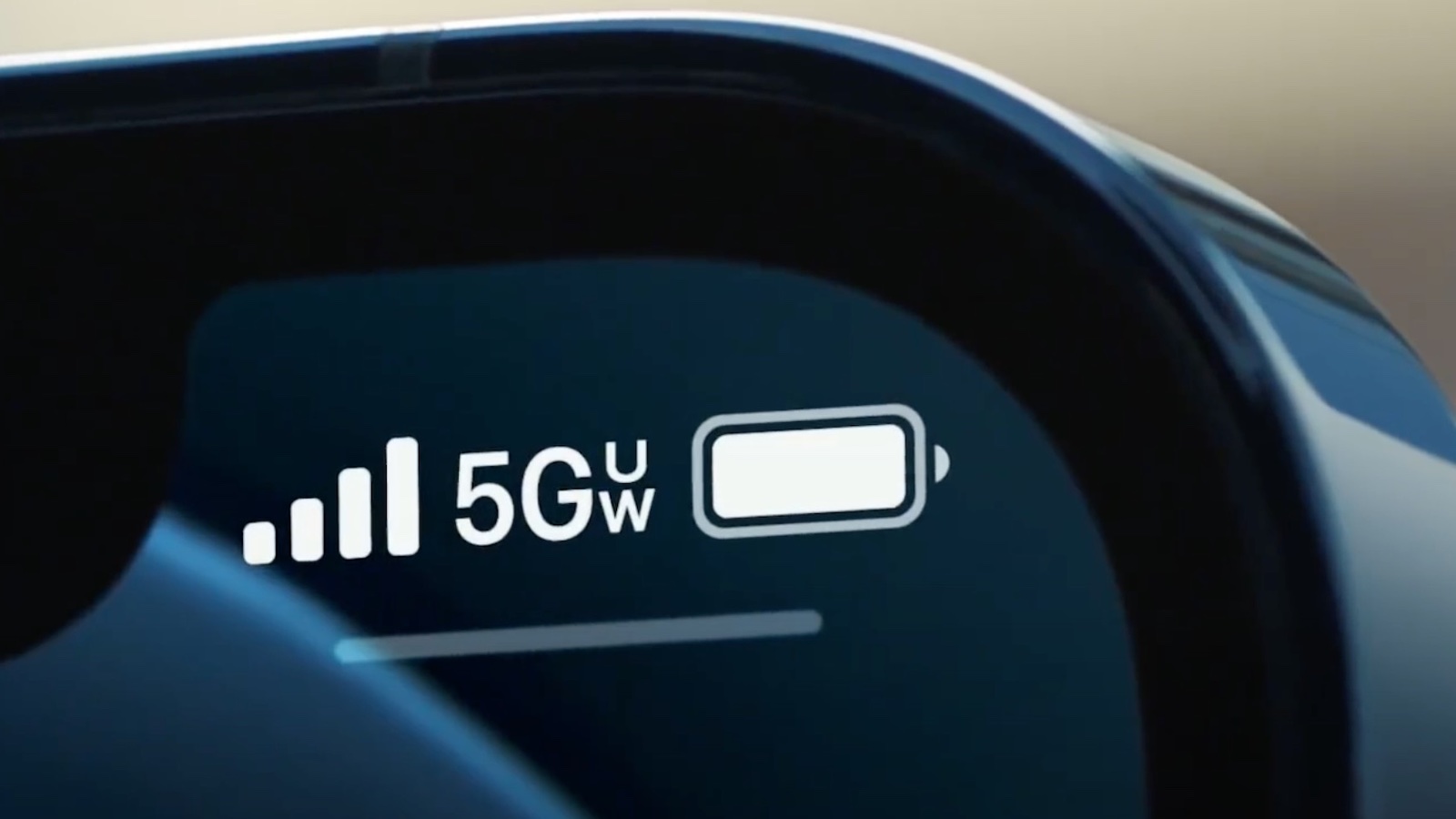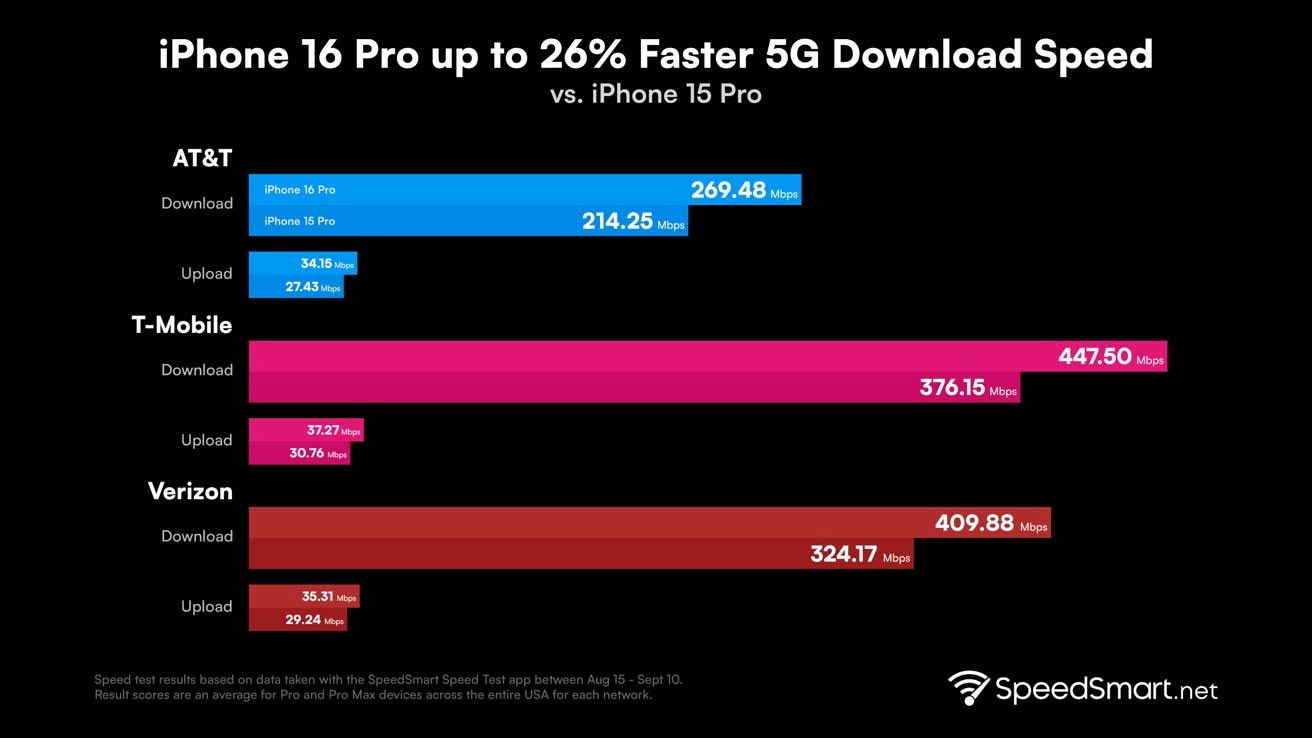
SpeedSmart’s testing revealed an average 23.7% increase in 5G download speeds for the iPhone 16 Pro and Pro Max across the three major U.S. carriers. Verizon customers saw the most substantial improvement, with a 26.4% speed increase, followed by AT&T and T-Mobile.
The data shows impressive performance for both T-Mobile and Verizon, with average download speeds exceeding 400 Mbps on the new iPhones. T-Mobile led the pack at 447.50 Mbps, while Verizon clocked in at 409.88 Mbps. AT&T users experienced a respectable 269.48 Mbps, marking a 25.7% improvement over the previous generation.
Upload speeds also saw a significant bump, with an average increase of 22.1% across all three networks. Users can now expect upload speeds to comfortably achieve over 30 Mbps, an often overlooked but crucial metric for mobile performance.
The Snapdragon X75 modem brings several enhancements beyond raw speed. It also supports 5G Advanced technology, offers lower power consumption, and comes with improved 5G carrier aggregation for those aforementioned upload speeds.
While the iPhone 16 Pro models benefit from the X75, the standard iPhone 16 models are believed to use the older Snapdragon X70 modem, although that has not yet been officially confirmed.

In addition to cellular improvements, all iPhone 16 models now support Wi-Fi 7. This latest Wi-Fi standard promises greater leaps in performance, with theoretical speeds of up to 46 Gbps and significantly reduced latency.
Despite these advancements, Apple continues to work on developing its own 5G modem technology. Analyst Ming-Chi Kuo suggests Apple’s in-house modems could debut in select iPhone models as early as 2025, perhaps first in the upcoming iPhone SE 4, potentially reducing the company’s reliance on Qualcomm.
Apple will open pre-orders for the iPhone 16 and iPhone 16 Pro models starting Friday, September 13. Initial shipments and in-store availability begin on Friday, September 20.
This article, “iPhone 16 Pro Models Reportedly Boast Up to 26% Faster 5G Speeds” first appeared on MacRumors.com
Discuss this article in our forums